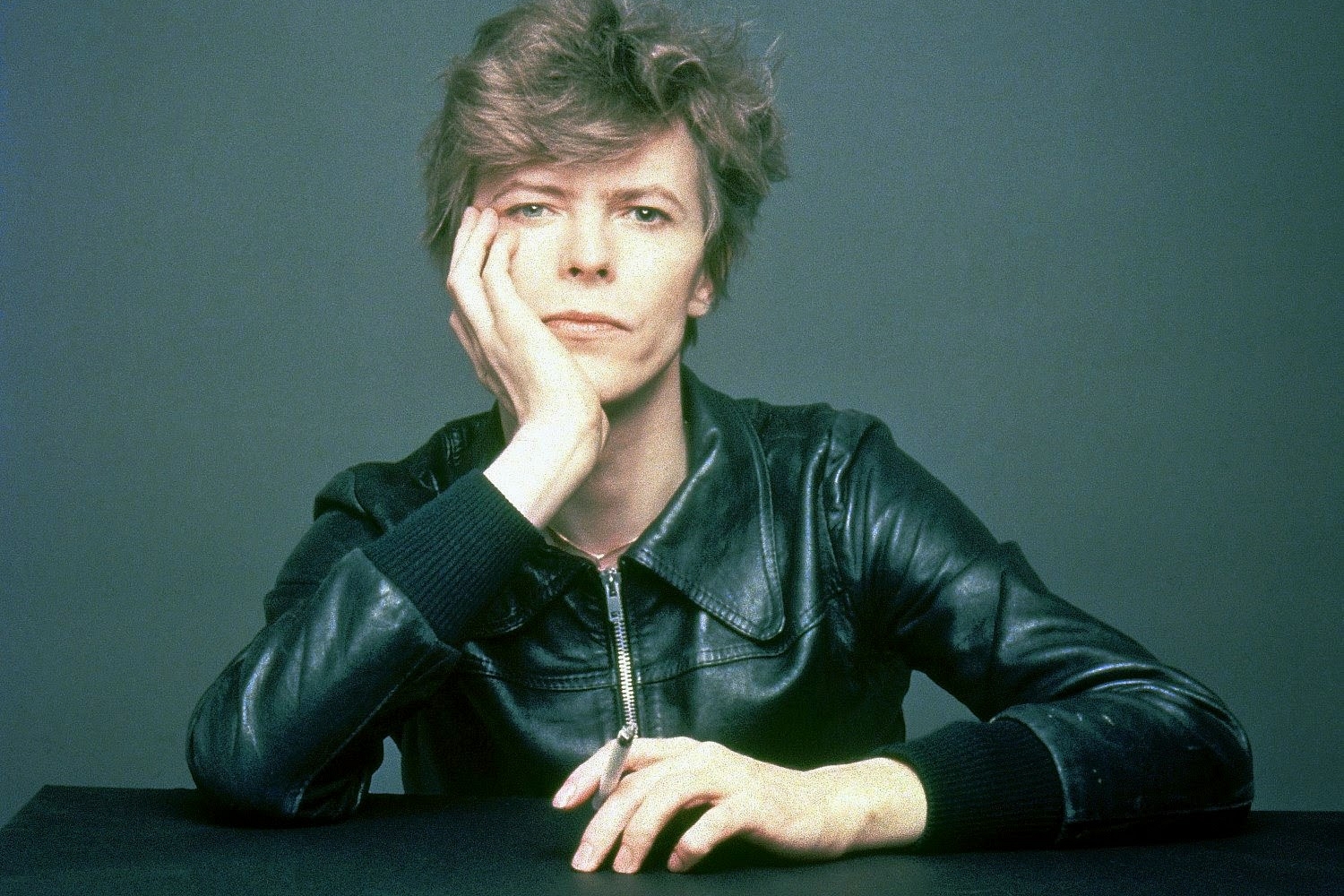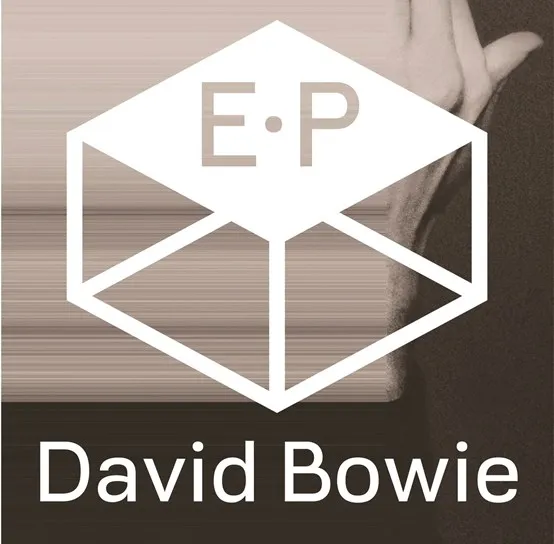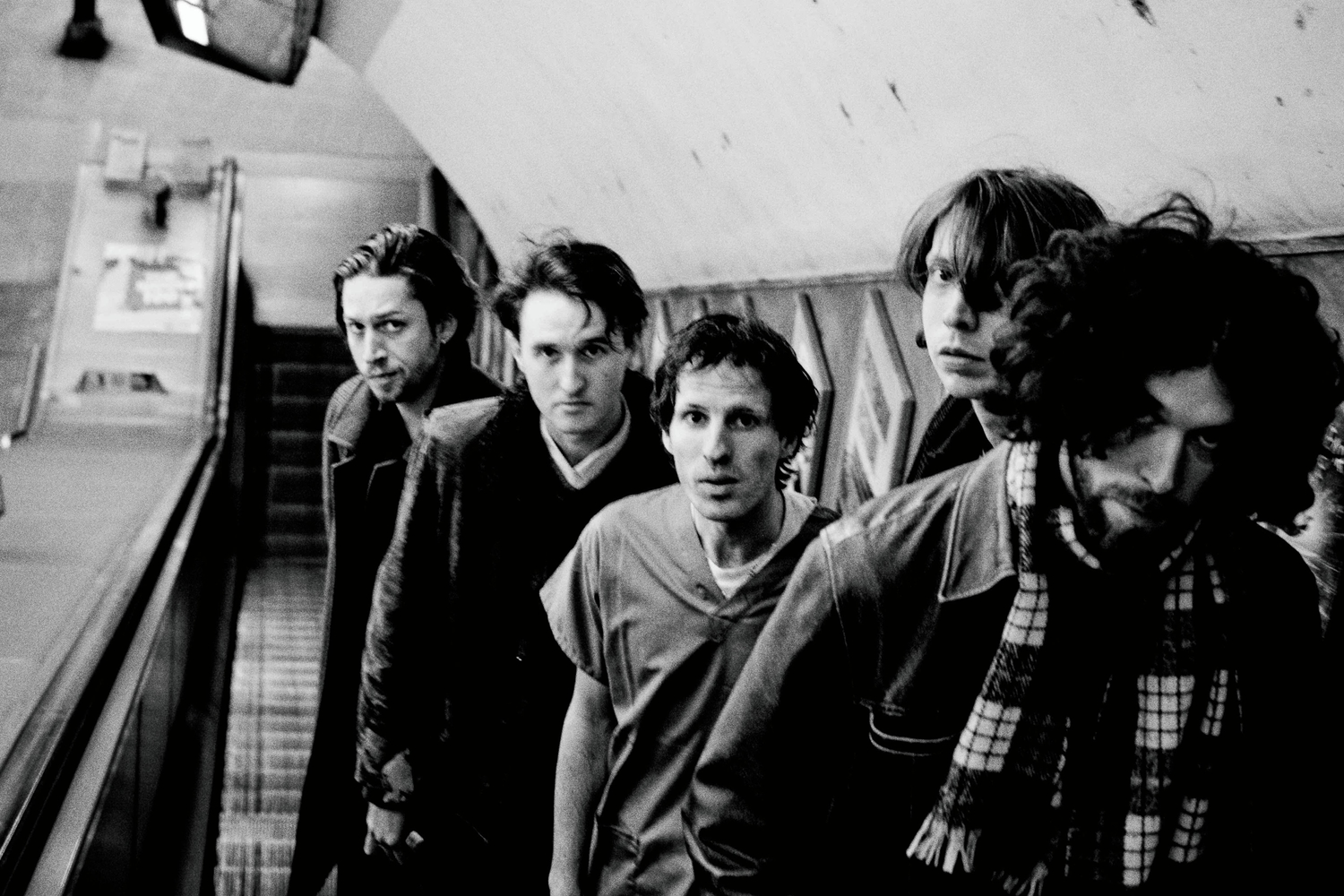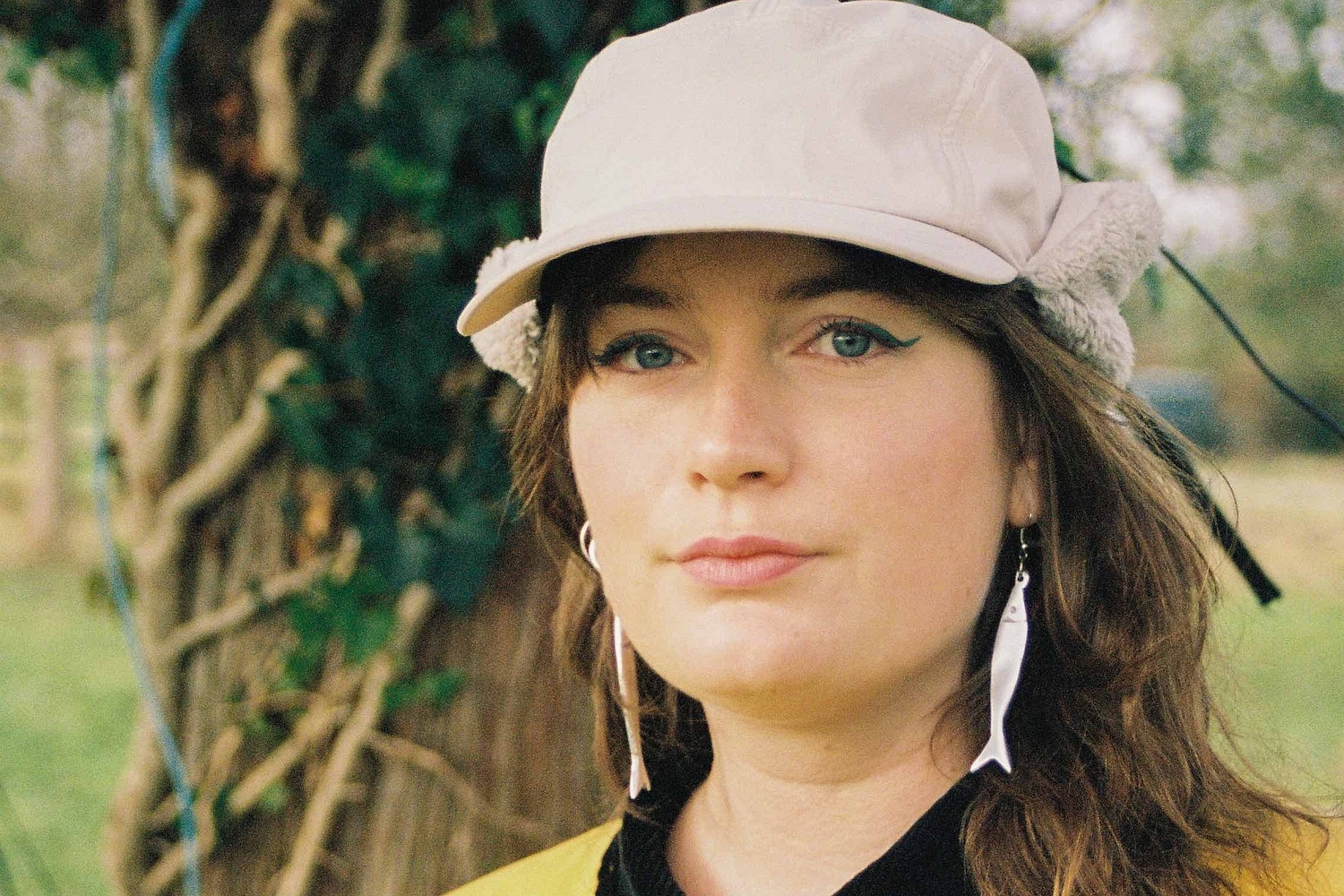News
David Bowie - The Next Day
4 StarsFor one who’s never really harked back to his old works, it’s as if he’s leaving us, deliberately, with reminders of his past.
A decade away from music. An album recorded in secret, announced with minimal information. The only hype generated from our own thirst for information, and a supporting cast, producer Tony Visconti and guitarist Earl Slick, finally legally allowed to talk about it. Few artists could get away with this. Bowie can. He’s done it before on a lesser scale. When ‘Lodger’ was released in 1979 there were only a couple of radio interviews to promote the last in his Berlin trilogy. He refused outright to do anything else.
When Bowie announced his comeback, there were obvious concerns. Almost certainly due to his absence, we’ve spent the last decade carefully learning to gloss over his mistakes. His was not the perfect career, not without misstep. There was Tin Machine, his attempt at being in a proper band, whose second album was critically mauled and a commercial failure. That duet with Jagger, when they puckered up for Live Aid and covered ‘Dancing In The Street’ (shudder). It wasn’t just confined to the later stages of his career, you can’t chalk it all down to mid-80s excess either. Long before ‘The Man Who Sold The World’, there was ‘The Laughing Gnome’ (sample lyric: “What’s that noise? It’s Fred, he’s a metronome”). As much as we’d like to think differently, where Bowie is concerned; quality isn’t guaranteed.
In the run up to this release all we’ve had to go on was lead single, ‘Where Are We Now?’, released with no warning on his 66th birthday. Visconti claimed that it wasn’t representative of Bowie’s unexpected 24th studio album. The record is rockier, those fragile vocals aren’t anything like the aesthetic of the album, he insisted. We now know, he wasn’t lying. Because other than that number, ‘The Next Day’ is about as far removed from the sound of a frail old man as it’s possible to get.
It’s immediately apparent from the title track itself. We’re told by Tony that this is the track inspired by Medieval English history, but it’s hard to figure from the lyrics just who or what David’s on about. Certainly, there’s something disconcerting, slightly brutal going on here, despite the upbeat tempo, cut through by Gerry Leonard and David Torn’s screaming guitars. Bowie is almost sneering about how “they can’t get enough of it all.”
More pertinently, the scene is immediately set for an album which is ostensibly about Bowie’s storytelling; albeit in a far less obvious manner than some of his past ventures. Last album proper, 2003’s ‘Reality’ had a concept (the clue was in the ironic title) but predecessor ‘Heathen’ was devoid of one deliberately; ten years later, we seem to have fallen into a middle ground. Each song feels like a separate vignette, but putting your finger on the exact theme isn’t easy; more often it’s left entirely to the interpretation of the listener.
For a man who once stated that his desire to become a musician stemmed from watching Little Richard with four saxophone players lined up behind when he was a boy, it’s clear that his love of the instrument hasn’t waned; it’s used liberally across the album. For all his past experiments with sax, as we approach second track ‘Dirty Boys’, it’s different; more stabbing than ‘Young Americans’, dirtier than ‘Jump They Say’ or ‘Heroes’. Whilst it’s gloriously sleazy, we’re still not feeling safe; particularly as he’s busy rhyming “buy a feather hat” with “steal a cricket bat.”
Moving on, ‘The Stars (Are Out Tonight)’ heralds a change of tone although not pace; Gail Ann Dorsey’s bass is now leading the proceedings. It might be being too simplistic to assume that lyrically, this is a comment on the celebrity culture which finds Bowie’s lunchtime sandwich choice ‘news’. Interestingly, it’s here that the expected subject of mortality - that ‘Where Are We Now?’ suggested might pepper the album, finally rears its head. And sonically, it’s more in ‘Lodger’ territory, strangely evocative of ‘Boys Keep Swinging’, instead of the heavy ‘Scary Monsters’-esque vibe that’s washed over the record previously.
We’re only around a third of the way into the album, and any lingering worries we had about this being a Bowie at less than full throttle are about to be completely banished. ‘Love Is Lost’ finds David turning the dis-chord in his keyboards up to eleven, while pulsating guitars stab behind. “What have you done? Oh, what have you done?” he near screams, heartbreak and despair etched in his vocals, over the battling keys, sax and guitar. It’s nothing short of staggering.
After all that, the softness of ‘Where Are We Now?’ feels totally out of place. It really doesn’t fit, at all. But as a reminder that Bowie can do aching subtlety better than the next man, whilst providing a couple of minutes respite, it still belongs.
And it allows for a move into a different rhythm, as ‘Valentine’s Day’ arrives with a strange sense of familiarity. Similar in sound to ‘Aladdin Sane”s ‘Drive By Saturday’, or as similar he ever gets to sounding like any of his past tracks. This could have been plucked from far earlier in his career. It’s more of a ‘classic’ Bowie; those who have never ventured beyond the early chart toppers won’t feel remotely confused.
Unlike ‘If You Can See Me’, which is far from comfortable. It’s a big old noise mess, with Zach Alford’s drums crashing over industrialised vocals and guitars. As probably the hardest listen on the album so far, it’s a timely as a reminder of exactly how much Bowie has influenced Nine Inch Nails over the years.
‘I’d Rather Be High’ finds Bowie back on the subject of death, although this time, it’s from the perspective of a young man at war; “I’d rather be dead, or out of my head, than training these guns,” he sings. ‘Boss Of Me’ seems deeply personal, harking back to his White Boy Soul, with sax toying with Visconti’s recorder. “Who’d have ever thought of it, who’d have ever dreamed,” he sings, in what we’d like to think is an ode to wife, Iman, “That a small town girl like you, could be the boss of me?”
‘Dancing Out In Space’ opens with a drum pattern not too dissimilar to 1983’s ‘Modern Love’, before the intro swirls into something altogether different. Glorious deep backing vocals juxtapose with Bowie’s almost clipped, slightly robotic tones to beautiful effect.
But if someone had told us that Bowie was going to sing along to The Shadow’s hit, ‘Apache’ at some point in the album, we’d have probably laughed and thought that he’d lost his marbles. But that’s exactly what he does. As it trips in on the frankly brilliant ‘How Does The Grass Grow’, you can’t help but grin, and not out of concern for David’s mental well being. And it’s a great foil to ‘Set The World On Fire’, which arrives with a throbbing intro that wouldn’t have been misplaced if it had been fired from The Clash’s cannon. We’re now in a ‘classic rock’ territory, or as close to it as Bowie’s ever likely to get.
‘You Feel So Lonely You Could Die’ is one most intriguing listens on the album; trying to work out the subject. Is it Elvis (too obvious, maybe?)? His old mate John Lennon? Or perhaps even Ziggy Stardust himself? Certainly, there’s a nod to ‘Five Years’ here, both in the way the song builds, and the moment at the end elevated over everything else is the same drum pattern as that number both started and ended with, all those years ago. It’s enough to bring a tear to your eye.
For one who’s never really harked back to his old works, it’s as if he’s leaving us, deliberately, with reminders of his past, as album closer ‘Heat’ evokes the memory of Major Tom. Bowie duets with himself, armed with an acoustic guitar and a string section that still manages to sound a bit… bleak. “And I tell myself,” he repeats, “I don’t know who I am.” But as it reminds us of Bowie’s first ever hit, ‘Space Oddity’, in a way, we’ve gone full circle. Does that mean it’s his last album? Who knows, but on the strength of this; we can only hope that’s not the case.
Read More

Mega-rare Bowie, Kylie, Liam Gallagher and Arctic Monkeys white-label vinyl to be auctioned for National Album Day
Test pressings from some of music's biggest names will go under the hammer early next month.
18th September 2019, 12:00am

Out Of The Blue: A Brief History Of The Surprise Album
After the recent release of Solange's 'When I Get Home', we chart some of the most notable sudden album releases of the past few years.
25th March 2019, 12:00am
Biffy Clyro record cover of David Bowie’s ‘Modern Love’
The song originally featured on Bowie’s 1983 album, ‘Let’s Dance’.
15th February 2019, 12:00am

David Bowie set to be played by Johnny Flynn in new biopic
The film has not had official approval from the Bowie family.
1st February 2019, 12:00am
With Bob Vylan, St Vincent, girl in red, Lizzy McAlpine and more.






